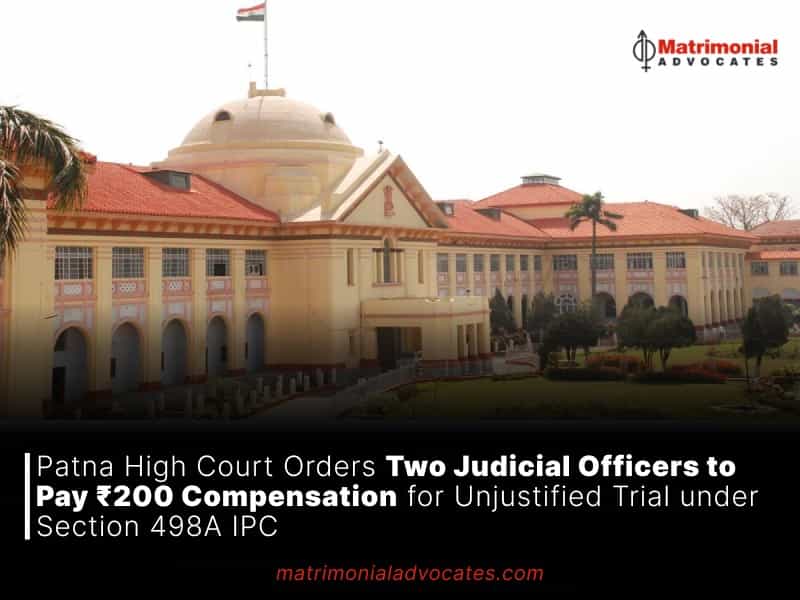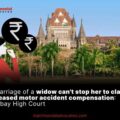
In an unprecedented judgment, the Patna High Court has directed two judicial officers in the state to each provide ₹100 as compensation to a man. This ruling follows an unjust trial the man underwent under Section 498A of the Indian Penal Code (IPC). The case revolved around allegations of harassment and cruelty against the man (the petitioner), despite the absence of the essential relationship requirement specified by Section 498A of the IPC, which necessitates being a relative of the complainant-woman’s husband.
“As the petitioner (revisionist) was made to suffer a criminal trial which is not maintainable against him and he was compelled to be confined in the correctional home at different points of time. This Court is of the opinion that the petitioner should be compensated since the petitioner was made to suffer the agony and trauma of a criminal trial as well as detention in custody for taking cognizance against him by the learned Magistrate and putting him in trial in a case which is not maintainable against him,” a bench of Justice Bibek Chaudhuri observed.
The Court emphasized that the compensation amount serves as a “token” to underscore the essential responsibility of the respective Judicial Officers. Their duty entails meticulously scrutinizing complaints before initiating action and ensuring that all proceedings adhere to legal standards throughout the inquiry and trial process.
This ruling emerged from a revision plea lodged by Sunil Pandit, contesting the judgment of the Additional Sessions Judge in Samastipur. The judge affirmed the trial court’s verdict, which found Pandit guilty under Sections 498A of the IPC and Section 4 of the Dowry Prohibition Act, resulting in a three-year imprisonment term and a fine of Rs. 1,000.
While refraining from delving into the case’s intricacies or the lower courts’ determinations, the High Court gleaned from the complaint petition that Pandit lacked the essential familial tie to the complainant woman’s husband, serving merely as an advisor to other accused individuals.
The High Court observed that Pandit endured an unjustifiable criminal trial, leading to his intermittent incarceration. Consequently, the Court ruled that Pandit merited compensation of Rs. 100 each from the involved Judicial Magistrates, namely Sri Ramanand Ram, SDJM, Dalsingsarai-Samastipur, and Hanuman Prasad Tiwari, Additional Sessions Judge, Samastipur.
The designated judicial officers are directed to remit the fine amount to the Criminal Cash Section of the Chief Judicial Magistrate in Samastipur within three weeks.





